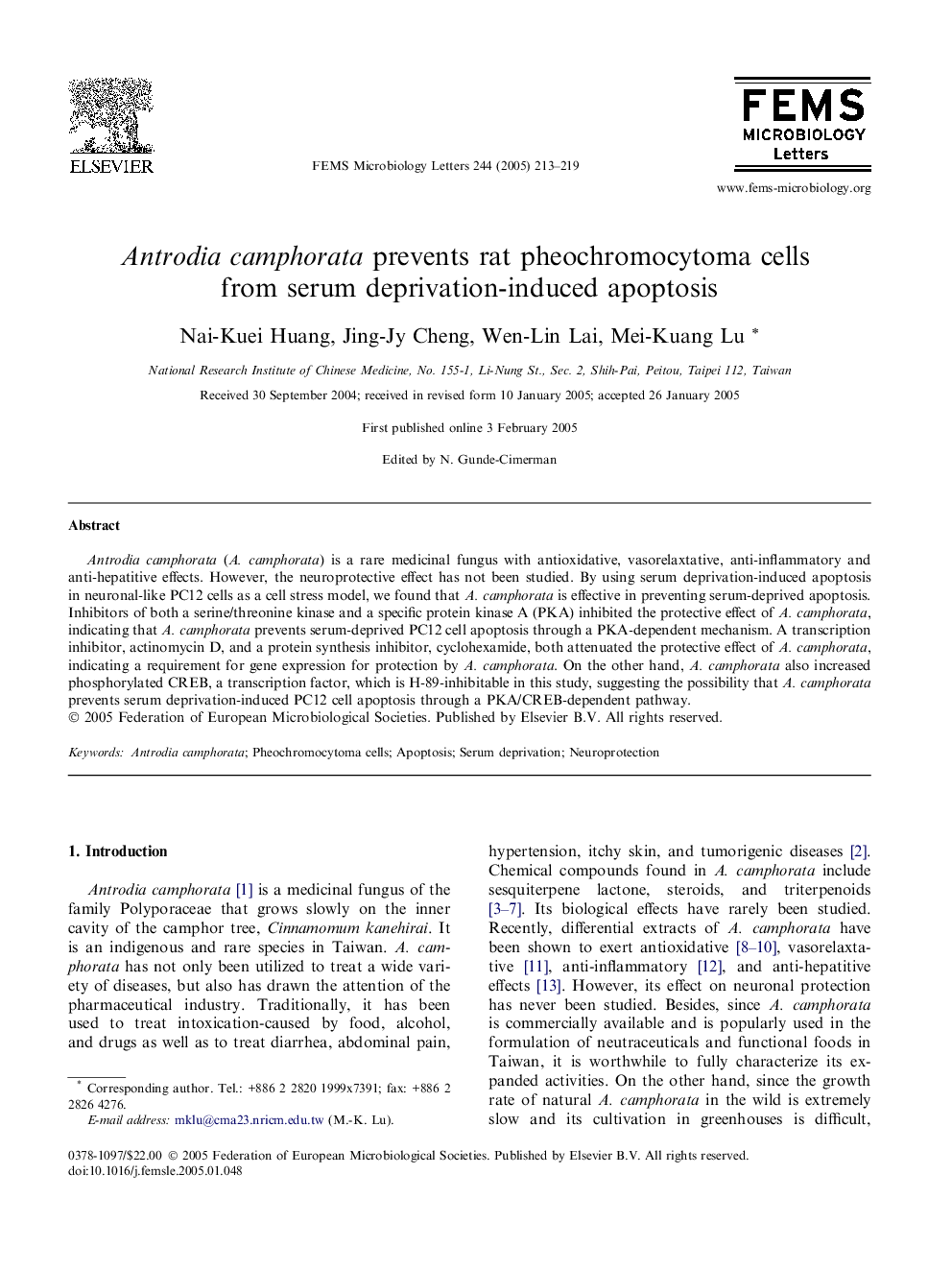| Article ID | Journal | Published Year | Pages | File Type |
|---|---|---|---|---|
| 9122001 | FEMS Microbiology Letters | 2005 | 7 Pages |
Abstract
Antrodia camphorata (A. camphorata) is a rare medicinal fungus with antioxidative, vasorelaxtative, anti-inflammatory and anti-hepatitive effects. However, the neuroprotective effect has not been studied. By using serum deprivation-induced apoptosis in neuronal-like PC12 cells as a cell stress model, we found that A. camphorata is effective in preventing serum-deprived apoptosis. Inhibitors of both a serine/threonine kinase and a specific protein kinase A (PKA) inhibited the protective effect of A. camphorata, indicating that A. camphorata prevents serum-deprived PC12 cell apoptosis through a PKA-dependent mechanism. A transcription inhibitor, actinomycin D, and a protein synthesis inhibitor, cyclohexamide, both attenuated the protective effect of A. camphorata, indicating a requirement for gene expression for protection by A. camphorata. On the other hand, A. camphorata also increased phosphorylated CREB, a transcription factor, which is H-89-inhibitable in this study, suggesting the possibility that A. camphorata prevents serum deprivation-induced PC12 cell apoptosis through a PKA/CREB-dependent pathway.
Related Topics
Life Sciences
Biochemistry, Genetics and Molecular Biology
Genetics
Authors
Nai-Kuei Huang, Jing-Jy Cheng, Wen-Lin Lai, Mei-Kuang Lu,
